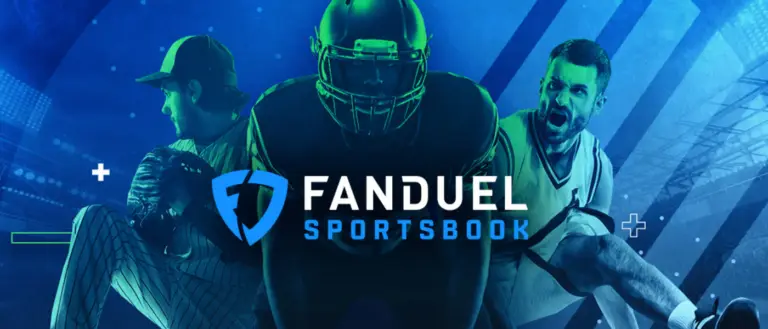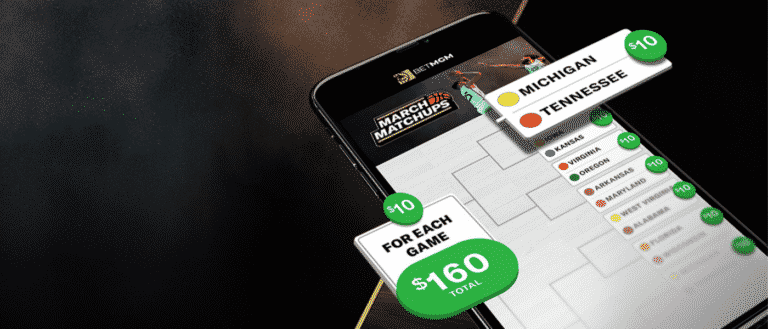Metric Gaming Gearing Up for US In-Play Sports Betting

An in-play sports betting company founded by a successful poker player and sports bettor is gearing up to take its fast-paced product to the market in the United States. Metric Gaming, which already supplies in-play betting solutions to operators in regulated markets such as the UK and Europe, now has its sights on the USA.
The man behind the company is Martin De Knijff. A few may remember the name from his poker days during which he had a successful tour on the professional tournament circuit capped with a $2.7 million cash at a 2004 WPT event. He is also said to be a winning sports bettor, but now the bulk of his work takes place behind the scenes on the business side of the gaming industry.
Golf.com recently profiled Martin De Knijff and Metric Gaming’s in-play product called SuperLive, which he says he’s planning for a Fall 2018 launch in the United States.
Knijff is just practicing for now, but soon he’ll be doing this for real as legal sports betting spreads across the US. Metric Gaming already has a foothold in the UK market and, as the Golf.com article notes, his company sometimes sets as many 5,000 separate betting lines for a single sporting event.
Bringing In-Play Sports Betting to the United States
In-play sports betting is a form of betting that we haven’t seen a whole lot of here in the USA, but that is likely to change in a big way over coming months. In-play betting accounts for a major chunk of the sports betting revenues generated by operators in other countries.
For example, major UK bookmaker Bet365.com reported last year that 72% of its sports betting revenue came from in-play betting over the 12-month period ending in March 2017. That is no small amount for a company that handled nearly £47 billion in sports wagers over that same period.
The basic idea behind in-play betting is to allow customers to bet on short-term events during the course of a televised game. In-play bets are short term in nature and issue instant payouts. For example, you might be able to bet on the winner of the next set in a tennis match or on which team will score the next touchdown during a football game.
In-play betting adds a new level of interactivity as it keeps customers engaged during the game as opposed to simply betting on the outcome of the game and then checking scores later. It also provides a more intense experience due to the speed at which these markets operate; there’s no time to sit back and look up reams of stats – decisions must be made quickly before the opportunity passes.
SuperLive reportedly takes in-play betting to a level not yet seen in the USA by adding even shorter-term wagers than who will score next. Many of the markets revolve around a single play, such as whether or not Peyton Manning and the Broncos will convert a first down as they step up to the line on third and long.
In a golf match, you might watch Bubba Watson set up for a long birdie putt on the 9th hole and then be offered a chance to bet on whether or not he’ll sink the shot. Or, you might be watching an NBA game as Lebron steps up for a free throw. Will he make the first free throw? How about the second?
The possibilities are nearly endless when it comes to in-play betting. Some offshore sportsbooks that operate illegaly in the US have tinkered with in-play betting, but none have gone as deep into the game as SuperLive plans to do in the US.
Not Just In-Play Betting
Based on company documents published on the Metric Gaming website, they may end up offering more than just in-play betting. A PDF (now removed) details some other interesting betting products Metric Gaming could potentially unveil in the US:
- SneakPeek: Buy an option before the match that allows you to place a bet within the first 30 minutes at the same price that was available before the match. In other words, you can watch a part of the match before deciding whether or not to exercise your option.
- Bet the Board: It is unclear how this works exactly, but it sounds like a new take on parlay bets. The Metric Gaming website explains that it is a “leverage product that lets players bet more than their bankrolls while at the same time minimizing risk” to a level the customer finds acceptable. Customers select at least 10 matches and how much they can stand to lose. The system takes these two inputs to calculate a wager size that allows customers to keep all winnings but still keep the total risk capped at the player’s chosen level.
- Maze Betting: In this game, players attempt to predict the exact sequence of events in a sporting event such as how the scoring will unfold. A matrix on the betting interface will show all possibilities and then light up the correct path as the match happens in real life. Customers stand to win large fixed-odds payouts as well as networked progressive jackpots.
- Three Strikes: This is a tournament-style game in which you’ll be competing against other players to predict the next event to happen in real time during a sporting event. Each entrant is allowed two wrong guesses and is eliminated after the third wrong answer. Payouts are awarded to the players who survive the longest and new contests start every few seconds throughout the duration of the sporting event.
The US Market is Ripe for Innovation
Nevada’s stranglehold on legal sports betting in the United States has come to an end, and with that comes greater opportunities for innovation. The legalization of online sports betting will open the door even further as cutting edge products such as SuperLive are able to take advantage of real-time statistics and the ability of bettors to place bets instantly from the palms of their hands.
SuperLive is just one such example. We also took a look at another unique company from Australia called PointsBet that also plans to enter the US market through partnerships with Meadowlands Racetrack in New Jersey and Tioga downs in New York.
PointsBet moves beyond the binary, yes/no format of traditional sports betting by offering payouts that are based on the accuracy of customers’ predictions. For example, a traditional point total bet would have you pick whether the actual point total will be higher than or lower than the predicted total. How far above or below the actual total ends up being has no bearing on payouts.
In comparison, a PointsBet point total wager would give you the option to bet, say, $10 per point on the predicted total. So if you think an NFL game will have more than 49 points scored, you would pick the over and then be paid $10 for every point above 49 that ends up being scored. If the total ends up at 59 points, you’d receive a $100 payout.
So far, that’s two innovative products we’ve already detailed this week despite online sports betting still not yet commencing in the United States. New Jersey should come online any day now and other states are sure to follow suit. The market potential in the USA is absolutely massive, so we’ll expect to see more innovation as time passes.







